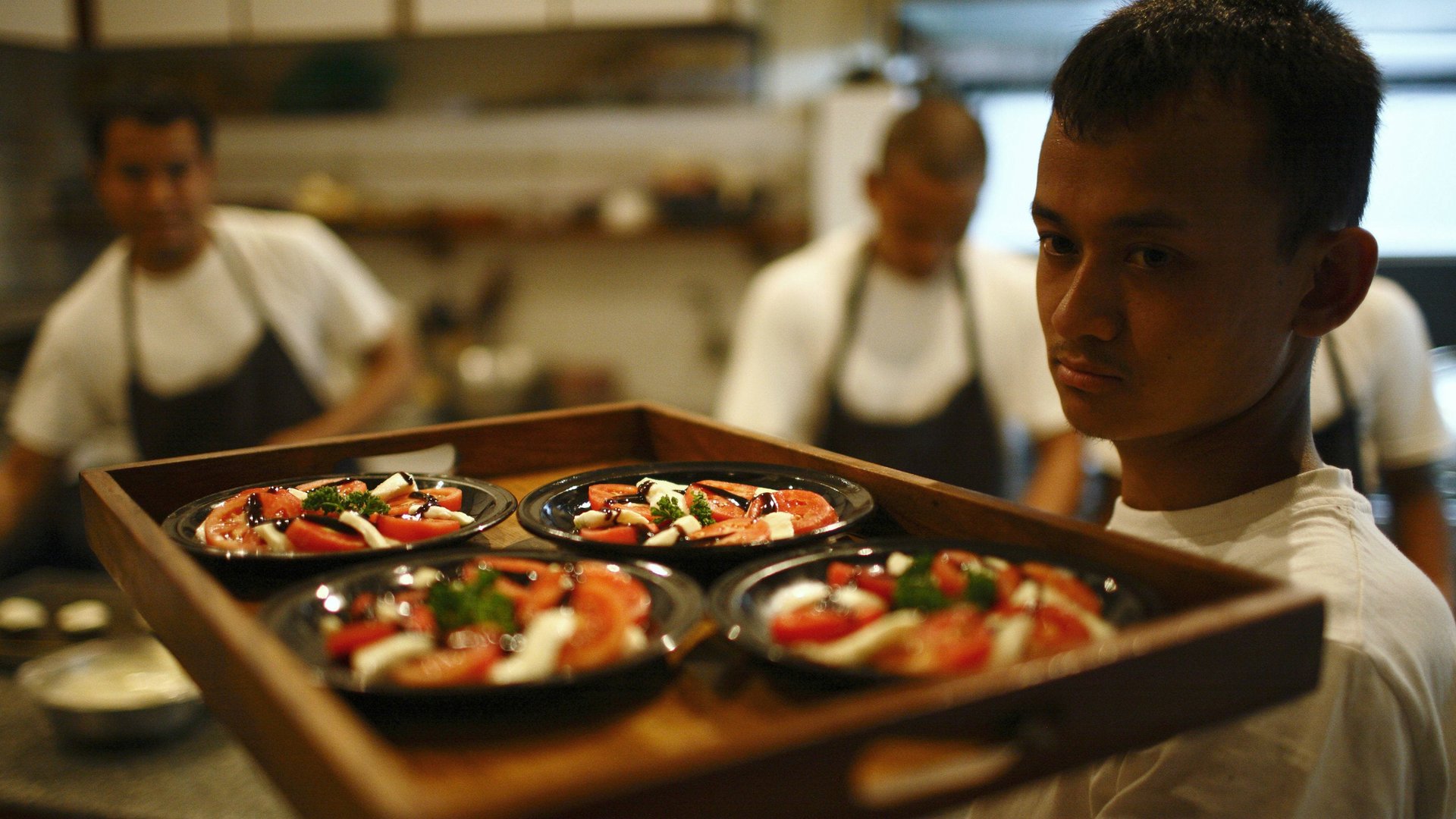Want to bond with a stranger? Try eating from the same plate
Communal eating has long been seen as a way to promote bonding: The family that eats together stays together, goes the saying. Professors from Cornell University and University of Chicago wanted to take that insight a step further, so they looked at whether eating from a single plate, as is typical in Indian or Chinese meals, actually helps people cooperate with each other.


Communal eating has long been seen as a way to promote bonding: The family that eats together stays together, goes the saying. Professors from Cornell University and University of Chicago wanted to take that insight a step further, so they looked at whether eating from a single plate, as is typical in Indian or Chinese meals, actually helps people cooperate with each other.
Their research, posted Dec. 18 on the University of Chicago Booth School of Business website (pdf), found that, whether friends or strangers, people who ate centrally served food were more likely to work better together and to be less competitive. Sharing food nudges diners to attend to each other’s needs, to assess one another’s movements, and to gauge whether and how much others served themselves. From that point, “attending to the food portion someone takes may lead people to attend to that person’s other needs and accommodate those needs with their behavior,” write authors Kaitlin Woolley (Cornell) and Ayelet Fishbach (University of Chicago).
The researchers ran three food-sharing experiments. One of the studies involved strangers in a wage-negotiation simulation (the management role aiming for lower pay and the union role vying for higher pay). As a cover story, they were told that the research was meant to test whether hunger influences decision-making, and the best performers in the test would have a better chance at winning a $50 Amazon gift card. To test the shared-plate hypothesis, participant pairs were either given shared bowls of tortilla chips and salsa, or their own personal portions of the snack before the negotiations began.
The idea was to see how many simulated negotiating rounds (of a possible 22 rounds) would be necessary to reach an agreement. A costly strike was to start after the second round, making drawn-out negotiations detrimental to both parties (but designed to be more costly to the managers). The participants negotiated silently until management’s bid exceeded the union bid. Participants were assessed on how many days of strikes they endured before reaching an agreement, and secondarily were scored on the getting the best-possible outcome for their particular side.
Sure enough, a big bowl of chips did the trick: Participants who ate from a shared bowl had fewer strike days and better secondary scores as well (union leaders got higher scores than managers, which was a feature of the experiment).
Other tests using goldfish crackers—a shared baggie of crackers versus individual baggies—in a simulated airline pricing war, as well as tests comparing participants who were friends or strangers, had similar results: People who metaphorically broke bread together cooperated better.
The researchers point out that other activities meant to foster cooperation also physically bring people together. Armies march in step, for example, and religious groups sing or chant in unison. Studying plate-sharing psychology is useful, the academics note, because most cultures include people eating together daily, sometimes with strangers. Furthermore, eating together can happen during political discussions, corporate merger talks, and parent-teacher meetings. The research suggests that tweaking the way the food is served could subtly make it easier for everyone to get along.